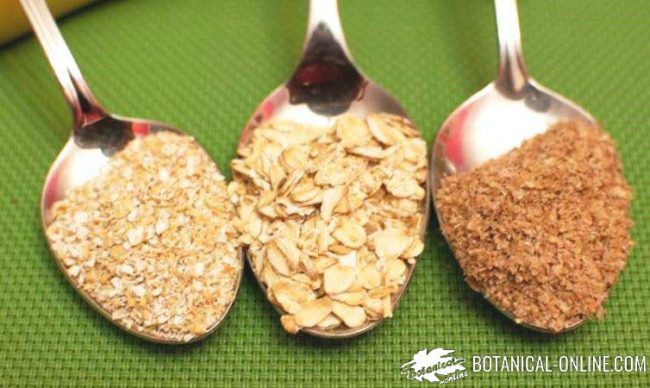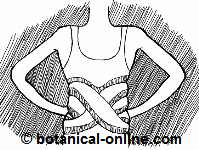Contents
Dangers and precautions of fiber supplements
What are fiber supplements used for?

Fiber is a component of plants that the body cannot digest. During its passage through the digestive tract it performs different functions such as stimulating bowel movement and improving digestive health.
Fiber indications
Among the main uses of fiber supplements are:
- Adjuvant of diets to lose weight
- Prevention or treatment of constipation, diverticula and hemorrhoids
- Cholesterol reduction
- Treatment of cough and sore throat (mucilage fiber)
- To satisfy the craving to eat
- Diabetes control
- Diets for people with heart problems, hypertension or poor circulation
Who should not consume fiber?
Fiber is found as part of food, that is, it is not an isolated component of the diet. Therefore, there are different sources of fiber and the contraindication of one or the other will depend on various factors, not only on the presence of fiber.
Possible problems with fiber supplements are discussed below. For a specific food, consult the specific contraindications of that food.
Fiber side effects
Taking fiber supplements can have a number of side effects:
- Flatulence or swollen belly: Eating large amounts of fiber can cause flatulence, especially in people who are not used to a diet rich in fruits and vegetables. These discomforts usually disappear in a few days, after accustoming the digestive system to fiber. A remedy to reduce gas is to eat yogurts and chew all foods well.
- Diarrhea: It can occur especially when eating foods rich in insoluble fiber, such as wheat bran, or an excess of fiber in general.
Precautions for fiber supplements
Ingesting fiber in excessive doses can cause more health problems than benefits:

Fiber supplements should be taken with plenty of water to avoid intestinal obstructions. You need to drink plenty of water along with fiber supplements to avoid problems. The water softens the fibers and facilitates their passage through the intestine.
- It is advisable to drink at least a couple of liters of water if this fiber supplement is included in the usual diet. Not consuming enough water can lead to intestinal problems, such as diarrhea, bloating, flatulence, or even intestinal obstructions.
- The acceleration of intestinal transit with fiber supplements can cause a deficit of nutrients if it lasts for a certain time.
- Diabetes: Some fiber supplements must be counted within carbohydrate servings, for example, oat bran or rolled oats.
Contraindications of fiber supplements
The most important contraindications of fiber supplements are:
- Celiac or gluten allergy: Fiber supplements with oats, wheat or other cereals with gluten. Never consume fiber in case of celiac disease or gluten allergy, only in cases where the label includes a gluten-free product. Other supplements such as flaxseed or chia are recommended.
- Intestinal diseases: People who suffer from some type of colitis, such as ulcerative colitis or Crohn’s disease, should not eat oat bran. Excessive bran diets can be triggers for outbreaks or gastrointestinal disorders. In case of diverticulitis, it is advisable to consult with your doctor about the advisability of taking fiber supplements, and what type of supplement is most appropriate.
- Diarrhea: When episodes of diarrhea or gastroenteritis appear, the taking of fiber supplements should be suspended until the normal intestinal rhythm is restored. Do not combine fiber supplements: Intestinal disturbances, diarrhea or intestinal obstructions due to excess fiber may occur.
- Anemia and osteoporosis: People with anemia should monitor the use of fiber. The phytates contained in oat bran prevent the absorption of iron.
- Taking medications: Fiber hinders, delays or enhances the effect of some drugs. A doctor should be consulted before taking these supplements if you are on medication.
![]() More information on the benefits of gut bacteria and high fiber diet
More information on the benefits of gut bacteria and high fiber diet









